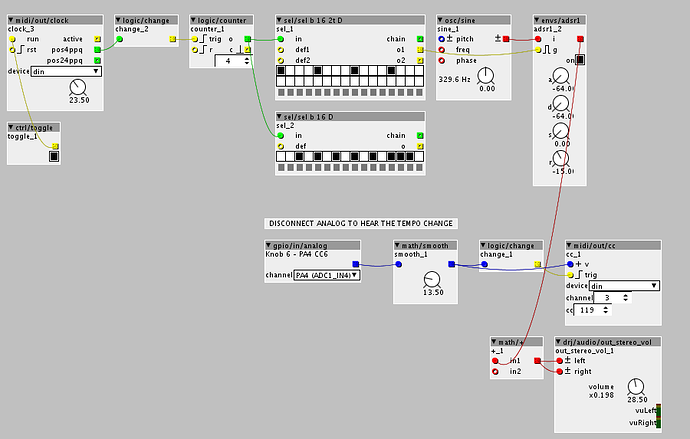Hello 
I am this morning experimenting with external clock and at the same time use the modular thing add on board to control some things. But I am experiencing some odd behaviour when using the midi/out/clock, midi/out/cc and the gpio/in/analog in same patch. Like this:
I know this sounds really weird.. But when I connect the gpio/in/analog to the midi/out/cc in the patch... Axolotis clock about drops to half tempo...... + it starts to sound very very bad and super digital. As soon as i disconnect it, it sounds good again and tempo is normal again
Could anyone try this patch and see if you get the same result? I am thinking it might be my modular thing add on board that is not the best solder job. But I didnt really think it could cause these kinds of issue.
Tempo weird.axp (5.1 KB)

